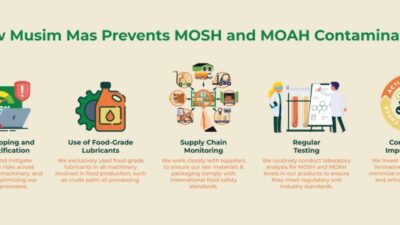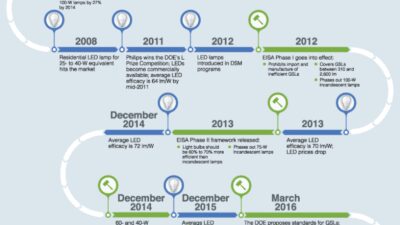Technology Ethics Articles – Catherine Banister is a responsible director management responsible for running a vision warning strategy with the whole technology, which develops and involves efforts of whole society. Catherine leads US institutions in the technology industry for technology talent.
Catherine served many leadership roles, including US development and exercise leaders, Catherine consultations with more than 25 years of technology in the US state converter. The Architect of the Teach Flightency Program in Catherine to develop and develop width and depths of technical capability and technical programs of technical technical professionals.
Technology Ethics Articles

Brenna led the snidman center for integrated research, where they care to lead the cross-industry to think. In this capability, Snideron leads a team of researchers who focuses on digital turialismation, global organizations during digital, cultural and work change.
Ethics Of Chatbots
Natasha Bakley is a senior manager and research leader in research and sight. Their research focuses on technology research and social instincts with corporate culture, morality and faith. In, he leads many good research workers with educational institutions, including MIT and Tufts’ Fletcher School.
Yes, Witch Tive gives a good opportunity for organizations that are more easier, easier and more responsible for organizations. But technologies are primarily in corporate processes before many people think of their use of branches. While learning some leaders, some apps, devices and systems have increased the moral dilemmas every time employees use them. Stories of organizations facing new privacy-related challenges, algorithmic bias and other technological related issues and financial disasters to organizations.
But institutions and their leaders rarely develop the overall procedure of the moral effects of using technology – not at the beginning of a comprehensive digital change. In addition, although companies do not consider technology as their main business, these considerations are often unrelated, even if they depend on advanced digital and physical technologies to perform their daily operations.
For most corporate leaders, it is no longer able to participate in technology despite industrial or sector. Leaders and their organizations cannot be called technical intelligently if they do not consider the moral consequences of how their employees, the consumers and others within their ecosystems use technologies.
Chatgpt Is Bullshit
Indeed, the moral use of technology or technology technologies cannot be separated and an extension of technical-life. Being tech-wise means it will improve to understand some moral dilemmas potential to design or use these technologies than cases or artificial intelligence (AI). In fact, to be intelligent during advance, connected and autonomous technologies, leaders should think not to design and implement the technical strength of technology. They should think about how it is responsible from the beginning.
Each of the studies in question at least some questions about the thinking of leaders around the moral use of technology. As a writer and contributing studies, we are shocked when common issues come out of data sets that can provide insight technical development but also in technology in behavior.
This data is viewed, we look at the digital and technological development of the company – in a way, its technology is related to technology related technology. Our research suggested that companies at the most advanced digital form are more concerned and focuses on technology-related behaviors than their digital journey. But this technical maturity seems to increase their attention to moral technology. These companies are often supported by leaders who have commitment to explore and consider the intended effects of inputing different cultures and developments in cultural input, discussion, dialogue.

If we consider the question of morality, it is important to get the difference between corporate and professional treatment of workers in technology behaviors. What do we say when we use the next word?
It’s Time To Talk About Responsible Tech
Economic world platform has a “technologies with clear moral dimensions – which is, a basic aspect of values, criteria and rupees. Technologies. Technologies. Technologies. Technologies. Technologies. Technologies. Technologies. Technologies. Technologies. Technologies. Technologies. Technologies. Technologies. Technologies
Moral technology is a conversation that focuses on its hearts, the relationship between technology and human values, decisions we make in technology development, and the consequences they have. The idea of moral technology indicates a set of values that control the company’s way of using technologies throughout business techniques and techniques to proficient technologies. It is a multifaceted concept, from contacting the data algorithms in algorithms, from replacing people with machines, so as to manipulate the data or human reactions. And the fact that organizations are not developed by behavioral technology framewaters do not mean that leaders ignore social recovery problems, the replacement of work and data.
It is also important to specify what is not what it is, while we examine what is moral technology. It is not limited to problems associated with adherence to the problems or questions of legalization; This is not a unique, attached effort or black-and-white blanket policy, which rules tightly correct and mischievous answers for each situation. Moral scenarios are unique and varied, and the visual behavioral moral code allowing leaders and employees to apply a framework for every situation.
What lessons can leaders to leaders and their institutions come from these inventions when considering their own techniques? And if today gives the easy to change the advanced technology, how leaders continue to build digital maturity and technology that can be related to future behavior?
Vol. 31 No. 1 (2022): Ethics In The Age Of Smart Systems: Special Issue
Here, we try to answer these questions by describing the insights of surveys and analyzing our most recent study of the world, as well as lessons from our tech-wise leadership. In fact, moral technology enhances the development of digital organizational travel and can be regarded as a natural expansion of technical trust.
Organizations of all ages, size and fields focus on corporate and professional policies. Most companies have a moral code, and mostly, if not all, all human resources are considered their work and morality to their organization. However, moral use of technology does not understand many organizations and their leaders. In a 2019 study, no outhird (30 percent) respondents agree that their leaders are more concerned about using the industry 4.0 moral technology.
Sa susama, ang lain nga bag-ong pagtuon nagtuo nga 35 porsyento lamang sa mga tawo ang mogahin og daghang oras sa paghunahuna ug nakigsulti sa mga pinuno sa ilang organisasyon bahin sa epekto sa katilingban sa katilingban sa katilingban sa katilingban sa katilingban sa katilingban sa katilingban sa katilingban sa katilingban.

In our research, we know that many organizations are still learning “technical institutions”, but it’s technologies companies – some companies have a digital local company – some companies have a company with a technology company – some company with companies with a company with design and adoption technologies. What institutions are, and more importantly, why do their leaders focus on the moral use of technology than others?
Operationalizing Ssit’s 5 Pillars: Pillar 2: Ethics, Human Values And Technology
Some organizations may worry more about their digital level of success to monitor moral technology. Many digital advanced companies are the most committed to understanding the consequences of technologies they work. About 57 percent from institutions regarded as “digital adult” say their organizational leaders spend only 16 percent of their digital changes (Figure 1). In addition, about 80 percent of natural digital adult companies with clear policies to support their moral criteria for initial companies.
Indeed, digital maturity can develop moral awareness. As for specific technologies, for example, Advanced AI growth brings more concerns about the moral consequence of a “higher-minded consequence” and the most recent assembly, the most recent research of the global AI indicates that companies have












